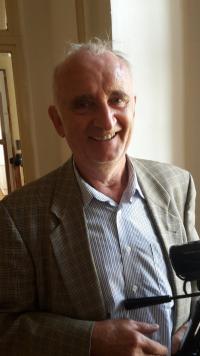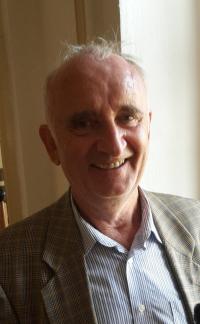Home lost, but not forgotten

Stáhnout obrázek
Georg Schiedeck was born on 24th April, 1945 in Waldeck, today Zálesí near Javorník, in East Silesia. He spent only one and a half years in Czechoslovakia at that time. In September 1946, he and his family were gathered in MUNA (former ammunition camp) in Niklasdorf (today Mikulovice). From there he rode via Prague to Furth im Wald to the German border, where a refugee camp was located. There the displaced persons were further distributed and sent to various places in Bavaria. One of his brothers, however, unfortunately remained in Waldeck, because in the last days of the war he found weapons, which the soldiers had thrown away in the Jager Land at their home. As a 16-year-old child he died, when he wanted to play with these weapons. The father was a bricklayer and very active, so he soon built his own house in Bavaria and contributed significantly to the improvement of the residential situation. He also helped with the fast integration amongst the native Germans, which was not easy. In his new home, Georg Schiedeck studied, after an obligatory military service in Bundeswehr he worked as a hydraulic mechanic and finally he became self-employed with his own company. After the death of his father in 1969 his first journey back to the old home started. At the age of 55 years, in the so called third phase of his life, he intensified his trips to the Czech Republic so much that he even organized a bus trips for all who wanted to take part in such trips from Germany. Above all, these were the displaced persons or their descendants, who wanted to learn about their family and roots. A young generation is very important for him, which sees the story with different eyes and from a different perspective than the oldest generation of the displaced. He also participated in the development of the book „Disappeared Sudetenland“ by the publishing house Antikomplex. With his circle of sponsors „Alte Heimat - neue Freunde“ he tried to find the relations between the two regions, Jauerniger Land and the area around Regensburg, where many displaced persons from the Jauerniger land found their new home, also to upgrade to the official level. In October 2016 he organized an official visit of the mayors from the micro region Javornicko to Regensburg and Wörth on the Danube.

